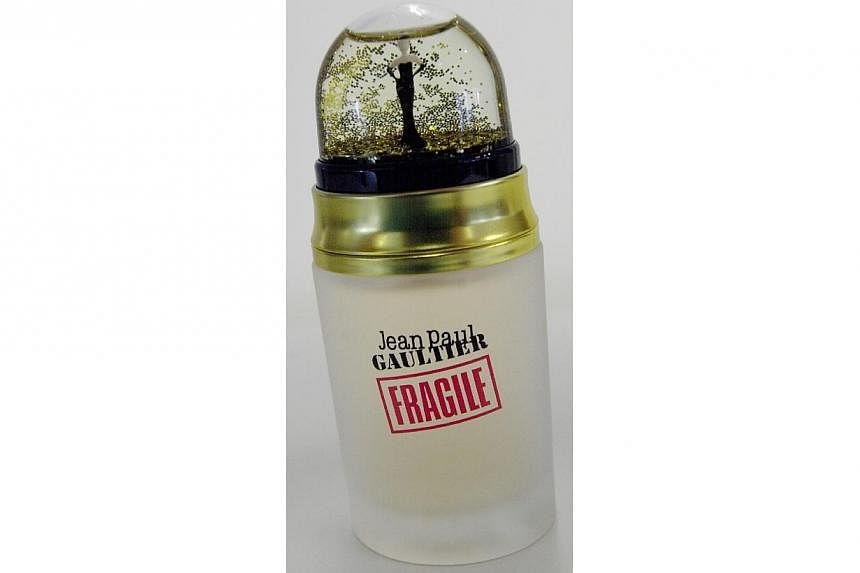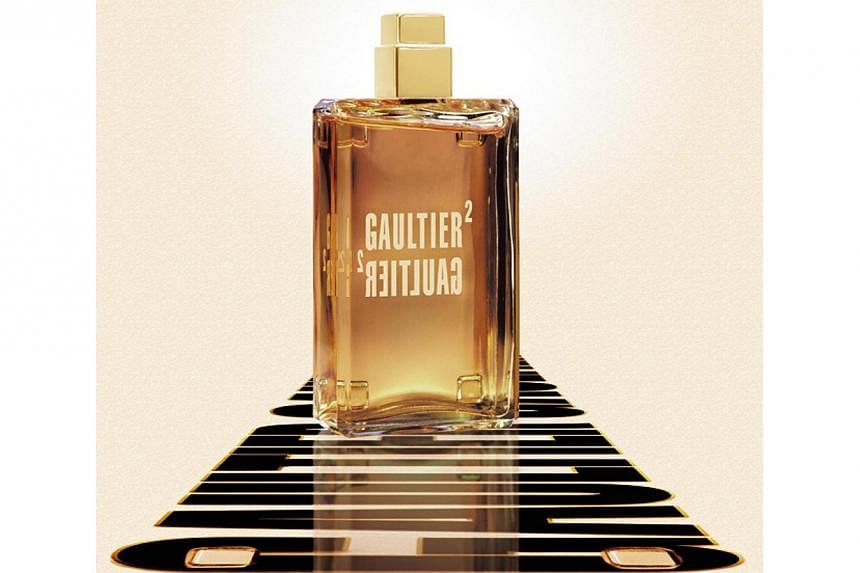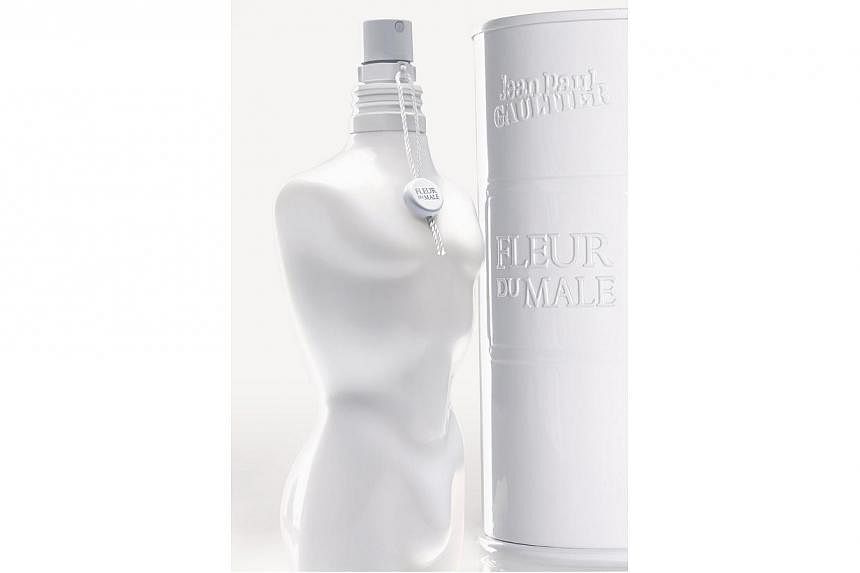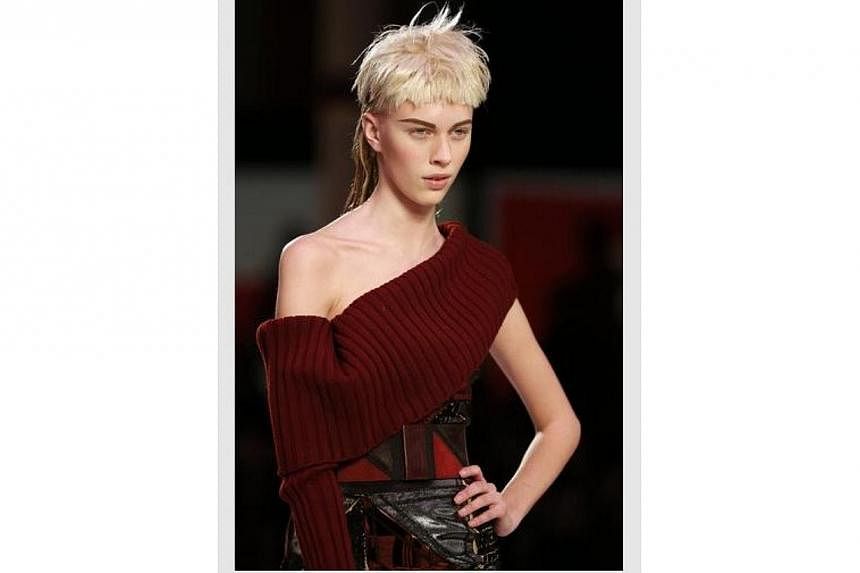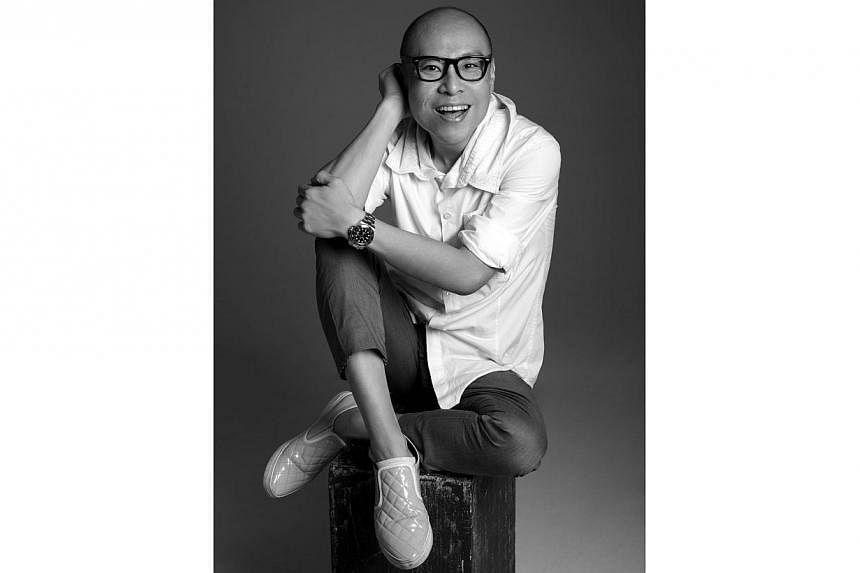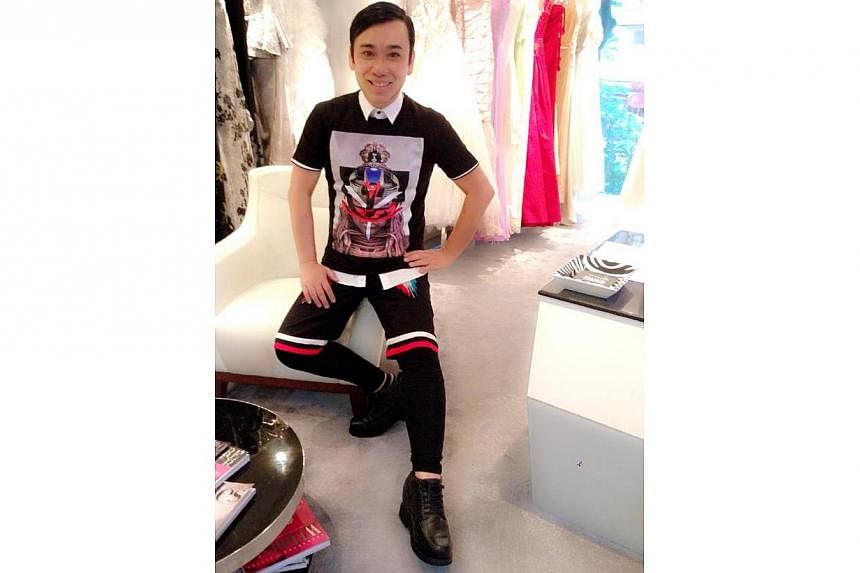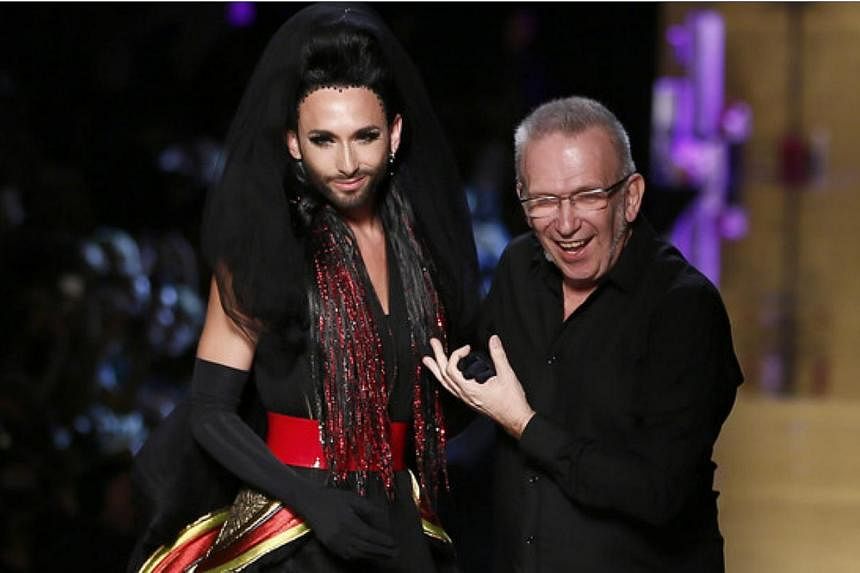Designer Jean Paul Gaultier has announced he will wind up his ready-to-wear (RTW) fashion lines later this month after nearly 40 years of over-the-top, sometimes provocative collections. We talk to some of the top industry players on the impact on the scene.

Frederick Lee, Frederick Lee Couture, 20 years in couture
Do you think Jean Paul Gaultier leaving RTW is a loss to the fashion scene?
I'm more anticipating - because that is where his artistry falls on. He's a couturier. I think there are more things to look forward to.
What kind of influence and impact has he had on the fashion scene and you?
He's one of my main inspirations. He is a good storyteller. And it might not be a bad thing that he is going to concentrate just on couture.
He is always a theatrical influence and he's always been more of a couturier because of how fine his things are, all his detailing.
From his Madonna bra cups to the denim mermaid gown with feathers, he has shocked the world with his use of materials. He has always been a leading influence in fashion because he dares to dream.
Why do you think he's leaving RTW?
I think for every designer now you have to think twice about going into RTW, because you have to compete with shops like Zara and H & M. They do things so fast, so well and so quick, going from runway to full rack within a week. Smaller players are just not fast enough.
Also those brands are cheap and easily accessible. You see a Chanel Cruise line, and soon after, you see something similiar in a fast fashion store.
You can find an entire Celine look and buy everything similar at a fraction of the price.
With an RTW line, people don't realise that a lot must be taken into consideration - Profit point, wearability, saleablity - so creativity gets compromised.
I think as a couturier, his energy is still there. He is still the incurable romantic who wants to enhance a woman's beauty and give her that moment of joy.
So his move is not a loss.
If you had anything to say to him about his move, what would it be?
Keep being radical. Challenge yourself. Keep dreaming. Because JPG has been dreaming every collection up. And who are we if we didn't have the ability to dream?

Francis Cheong, Francis Cheong Atelier, 30 years in couture
What impact do you think Jean Paul Gaultier has had on you, and on the fashion scene?
I was and am a huge Gaultier fan. Jean Paul Gaultier was huge in the 80's and I owned so many pieces of Gaultier and even Gaultier Jr back then. He is the enfant terrible and he played with corsetry, the conical bras and his signature pieces are legendary. All designers can appreciate and admire his whimsical, dramatic flair. But he hasn't changed. So he has to let the market change him.
Why do you think he is stopping RTW?
I used to do RTW in 2001, and retailed in Isetan, Promenade, and even in Bangkok at Robinsons and I can tell you - there is a difference between selling and creating.
As a designer grows older, in his golden years I think he would prefer to do what he loves to do, which is unleash his creativity to the max. In couture you get to pay attention to every last detail, even the shape and size of the smallest bead. So either way I think it's a good personal choice on his part.
If you don't want to go with the flow, you have to just be yourself.
You almost launched a fragance line in your 8th year in the fashion business, but didn't. Why do you think Jean Paul Gaultier is choosing to remain in that?
I think remaining in fragrances will continue to keep his branding and following, and it probably would even help him make his money to fund his couture collections.
People who still want to feel like they are a part of this luxury brand are more likely to buy say, a $100 bottle of perfume, compared to a $1m dress.
Perfume is profitable which is why big companies like Dior do it. Your largest cost is manufacturing your bottles. The perfume itself, cost wise, might cost only $20 to $30 for a bottle that retails up to $300. And I'm sure he would not give up good revenue.
For me, it was an expensive endeavour for a small market. But for him, as an international brand, it makes dollars and sense.
Why do you think Jean Paul Gaultier's RTW line did not sell well?
The trend now is disposable fashion - items worn only once or twice. With a JPG ready-to-wear piece, we are still talking about a $3,000 creation, which is expensive, especially because his designs are loud, dramatic, noticeable and immediately recognisable - so you probably can't wear it again.
If people are going to put down $3,000 on clothing these days, they tend to invest in classics. A Hugo Boss suit for instance. Something that they can get more wear out of.
Would you go back to RTW?
I will only go back to RTW if I had good backing of a banker for instance, who has faith in me, and only if I am producing for a big market like China. If not, I think couture allows me to be true to myself.
I think Mr Gaultier, just like me, might want to relax a bit. Slow down and take life a bit easier. To me, someone giving me a sizeable amount, and trusting me to come up with a creation for their big day or special occasion, makes me feel honoured.
The people who buy couture are buying a dream. They are not buying reality.
It's a different philosophy. And it seems like Gaultier is returning to his roots.

Alfie Leong, designer of MU Apparel, A.W.O.L, and founder of Workshop Element, a boutique that hosts a community of curated local designers, 11 years designing for his own labels
What do you think of Jean Paul Gaultier stopping his RTW line to focus on couture?
All creators need to express themselves. And each piece of couture is like an art piece. Jean Paul Gaultier is a creator. And he needs to create his art.
These days dilution occurs even with brands doing crossover lines with fast fashion. There are no loyal customers. So it's all about the lower price point. To be in the market, you can either go very high or very low. There is no in-between.
I feel that by leaving RTW, he can be more focused.
Why do you think he is stopping the RTW line?
While there is more commercial viablity in RTW, there is a more personal touch in couture. He is leaving probably because either RTW was not making enough money or he just wants to concentrate on doing things that he really wants to do.
What kind of influence has Jean Paul Gaultier had on the fashion scene and you?
I watched the documentary on him and he is very meticulous. Sewing pieces 30 minutes before a runway show. Re-doing or changing an item more than 10 times. I watched him use patches of crocodile skin that he quilted into a dress. His office was turned into a 24/7 production with people working day and night shifts on that outfit. So much time and effort is put into just one piece of item. It's amazing.
He has always been known as rebellious and unconventional but there is a part of him that still holds on to his French roots. For example, when he completely reconstructed a vintage French ball gown, going against the grain, yet paying homage to tradition in his own way.
As the founder of a boutique that curates several brands, why would Jean Paul Gaultier have found RTW unprofitable?
It is hard to be in fashion. Some designers feel that they can charge more because they have limited quantity, a limited amount of pieces. But when consumers look at an item, they don't care whether or not you only have a few pieces.
In RTW now even if you have good workmanship, good design and a strong concept, there are so many alternatives, so you have to raise the bar no matter who you are. You can't even compete with fast fashion, so you have to build a cult around your brand.
Is it a good move to stop RTW?
Stopping RTW is a bold step. But he will get more quality time. There is no pressure to churn out six collections in a year. He'll have more time for himself. And I think this is very important because he will have more peace of mind.
He was popular in the 1980s and 1990s because people could relate to him. But then the world started opening up. People were exposed to more brands, trends and designers.
I think things started changing for Gaultier's RTW line in 2000, when things took a turn. Jil Sander became popular for its simplicity. Minimalist creations like Vera Wang's gowns became the big thing. And everything with Gaultier has a distinctive print, something loud and theatrical. But people started associating clean lines with classy and loud with trashy.
Marketing and PR is a big part of the game. Even Yohji Yamanoto, Dolce & Gabanna have all gone through hard times. And it's never easy. It's the change of an era and listening to customer behaviour is important because fashion is constantly evolving.
Everybody can be replaced. JPG leaving is a loss but the scene is so big now, there are new designers every day. Like they say on Project Runway, one day you're in, the next day you're out.
